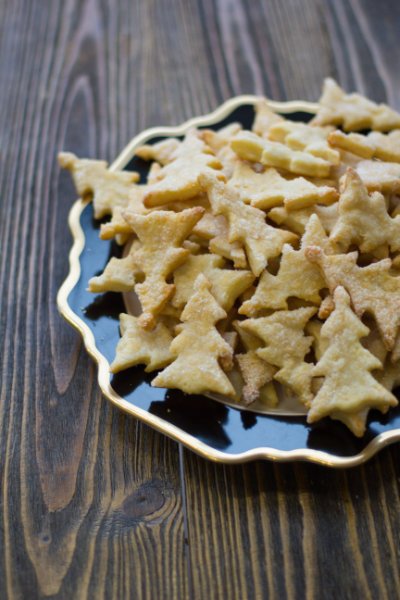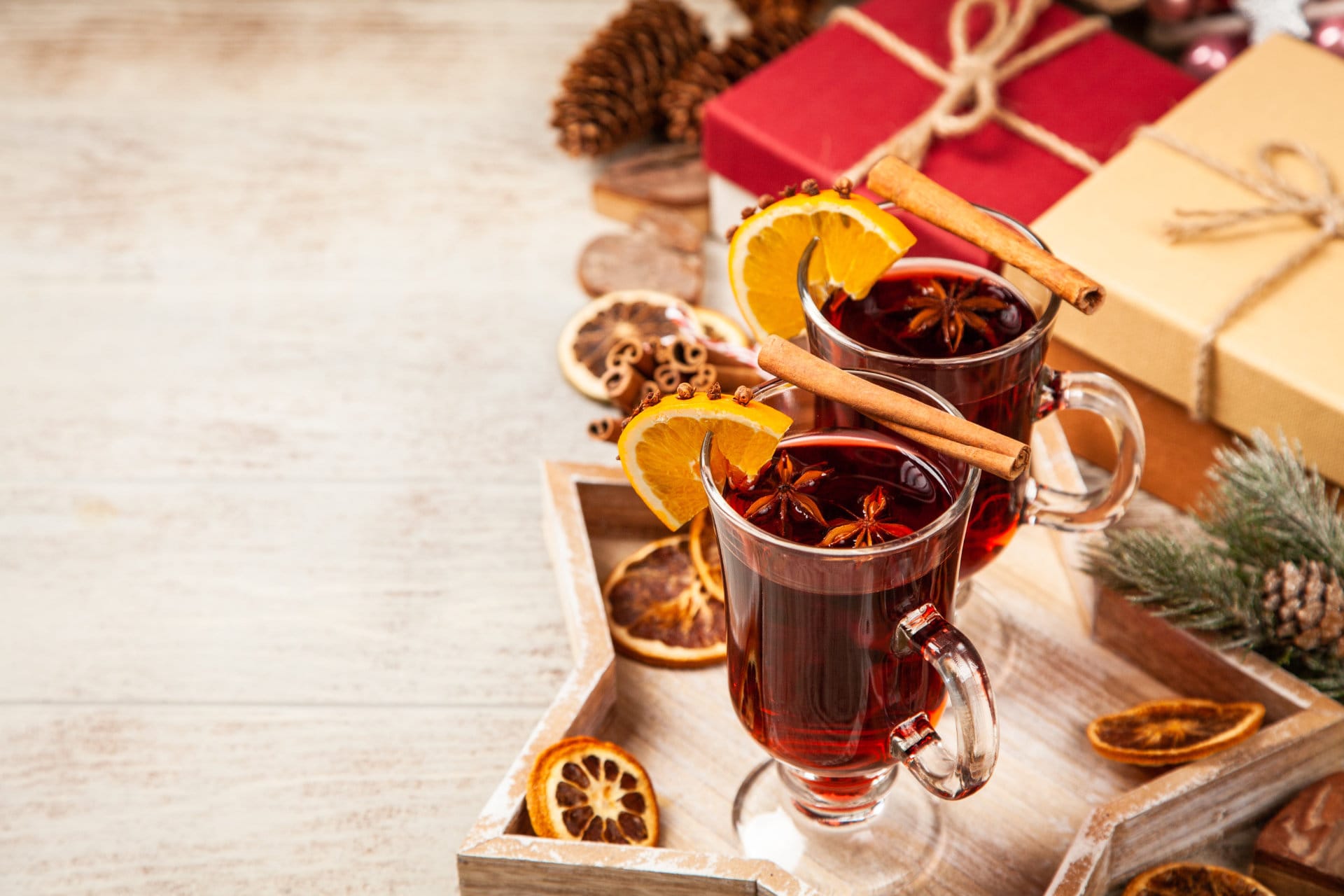During the Christmas season, the joyous festivities often bring the temptation of eating too much.
As we immerse ourselves in this joyous ambience, a timeless predicament often accompanies the celebrations—the allure to indulge excessively.
In this blog post, we’ll delve into the holiday dilemma of eating too much at Christmas, unravelling the reasons behind our overindulgence and offering insights into balancing celebrating the season and mindful eating.
The Christmas Feast’s Allure
The holiday season comes alive with an array of tastes as the table tempts with an abundance of delicious dishes that enchant our senses. From succulent roasts that promise a symphony of savoury notes to decadent desserts that sing with the season’s sweetness, the sheer variety and richness of Christmas dishes create an irresistible spread that transforms each meal into a celebration of taste and tradition. It becomes quite a challenge to resist the temptation of going for seconds or thirds when the air is filled with the aroma of festive delicacies. It promises an experience that goes beyond fulfilling our basic needs.
The atmosphere is filled with the scent of family recipes. Each dish holds the tales and recollections of past holiday gatherings. The excitement of savouring these dishes adds to the attraction of the holiday feast, offering a delightful experience for the palate and a meaningful exploration of cherished culinary traditions.
The Social Dynamics
Feasting as a Social Affair
With its inherent spirit of togetherness, Christmas often translates into shared moments around the dining table with loved ones. The joy of communal feasting becomes integral to the festive experience, creating an atmosphere of warmth and connection. The communal spirit can inadvertently lead to eating too much, as the joy of sharing a meal may encourage indulgence beyond one’s usual limits.
Peer Pressure and FOMO
The holiday season tends to evoke a sense of FOMO (fear of missing out), especially when mouthwatering dishes and delightful festive treats grace the Christmas table. Driven by peer pressure, individuals often succumb to the temptation of indulging in celebrations, sometimes disregarding their intentions of mindful eating. The allure of each dish and the communal enjoyment of these delicacies can create a social environment where the boundaries of moderation are tested, making it challenging to resist the temptation of seconds or thirds.

Social Expectations
Social expectations around indulgence during Christmas add another layer to the holiday dilemma. Striking a balance between having fun, enjoying the festivities and maintaining personal well-being becomes delicate. There is often a lot of pressure to indulge in the delights that come with the season. It’s seen as a way to express joy and celebrate. It can sometimes be challenging for people trying to balance expectations with mindful eating choices. Navigating these expectations requires a thoughtful approach, wherein individuals find ways to revel in the communal spirit of the season without compromising their commitment to personal health and well-being. Finding the balance is vital in enjoying meals and making mindful choices for our well-being.
How to Cope with the Guilt of Eating Too Much
The aftermath of overindulgence during the holiday season unfolds on both physical and emotional fronts. The physical discomfort experienced when eating too much is quite apparent. The emotional effects of overindulgence can be just as challenging to deal with. During the holiday season, feelings of guilt and regret can sometimes overshadow the atmosphere., Turning what should be a time of celebration into a moment for introspection and self-evaluation.
Guilt, a familiar companion after indulgent feasting, can dampen the holiday spirit. However, understanding that occasional indulgence is a natural part of the holiday experience is crucial. Implementing self-compassion becomes a transformative practice, allowing individuals to release guilt and embrace the understanding that the season’s joy extends beyond the confines of perfect dietary choices. Reframing the narrative around overeating, one can nurture a healthier relationship with food and self.
Coping with the aftermath of overindulgence involves practical strategies for recovery. Hydration is good for eliminating toxins and supporting digestion. Engaging in activities like walking or doing light stretching can boost energy levels and alleviate any feelings of sluggishness you may be encountering. Taking time to thoughtfully consider the decisions made during the feast helps us become more aware of what triggers us and lets us plan for future celebrations.
Mindful Eating during the Holidays
Mindful eating involves being fully present and consuming each bite, savouring the flavours, textures, and aromas. People can enhance their dining experience by slowing down and truly savour the food, leading to a more enjoyable and fulfilling experience.
Mindful eating naturally extends to practising portion control without sacrificing the enjoyment of the festive spread. Practical tips empower individuals to relish each dish while maintaining a balance that aligns with their health goals. These tips may include using smaller plates, serving smaller portions initially, and taking time between servings to assess hunger levels.
While indulgence is a part of the holiday experience, incorporating nourishing choices ensures a well-rounded celebration. This can involve including various colourful vegetables, opting for lean protein sources, and choosing whole grains. Including healthier alternatives adds nutritional value to the feast and reinforces the idea that holiday celebrations can be both delicious and health-conscious.

Family Traditions and Adaptations
During the holidays, families often have cherished traditions that focus on enjoying meals and feasting.
Reimagining traditions focusing on health and mindfulness can bring new life into the holiday experience. This may involve tweaking traditional recipes to include healthier ingredients, exploring new cooking methods, or finding creative ways to infuse nourishment into longstanding culinary customs.
Discussing festive eating expectations creates a supportive environment for maintaining a healthy balance. Families can openly communicate about individual dietary preferences, health goals, and strategies for navigating the holiday feast together.
Introducing new rituals prioritising celebration and health can be a transformative aspect of the holiday experience. Families can explore activities that promote movement, such as a post-feast stroll, a friendly game, or a dance party. These new rituals add a joyful element to the celebration and contribute to a positive and mindful approach to holiday feasting. Incorporating moments of gratitude, mindfulness exercises, or communal activities that don’t revolve around food can redefine the holiday experience.
Conclusion
The holiday feast’s tempting array of dishes and the joyous togetherness it fosters are undeniably an integral part of the season.
As we conclude this exploration of the holiday dilemma of eating too much, let this season celebrate not just indulgence but holistic well-being and happy shared memories with loved ones.
May the joy of Christmas resonate not only in the delectable flavours of the feast but also in the laughter, love, and togetherness that define this magical season.
Images Used
Photo by George Dolgikh: https://www.pexels.com/photo/two-clear-glass-footed-mugs-1666061/
Photo by Pavel Danilyuk: https://www.pexels.com/photo/christmas-cookies-on-the-table-5623616/
Photo by Marta Dzedyshko: https://www.pexels.com/photo/christmas-tree-shaped-biscuits-on-plate-2067397/





0 Comments